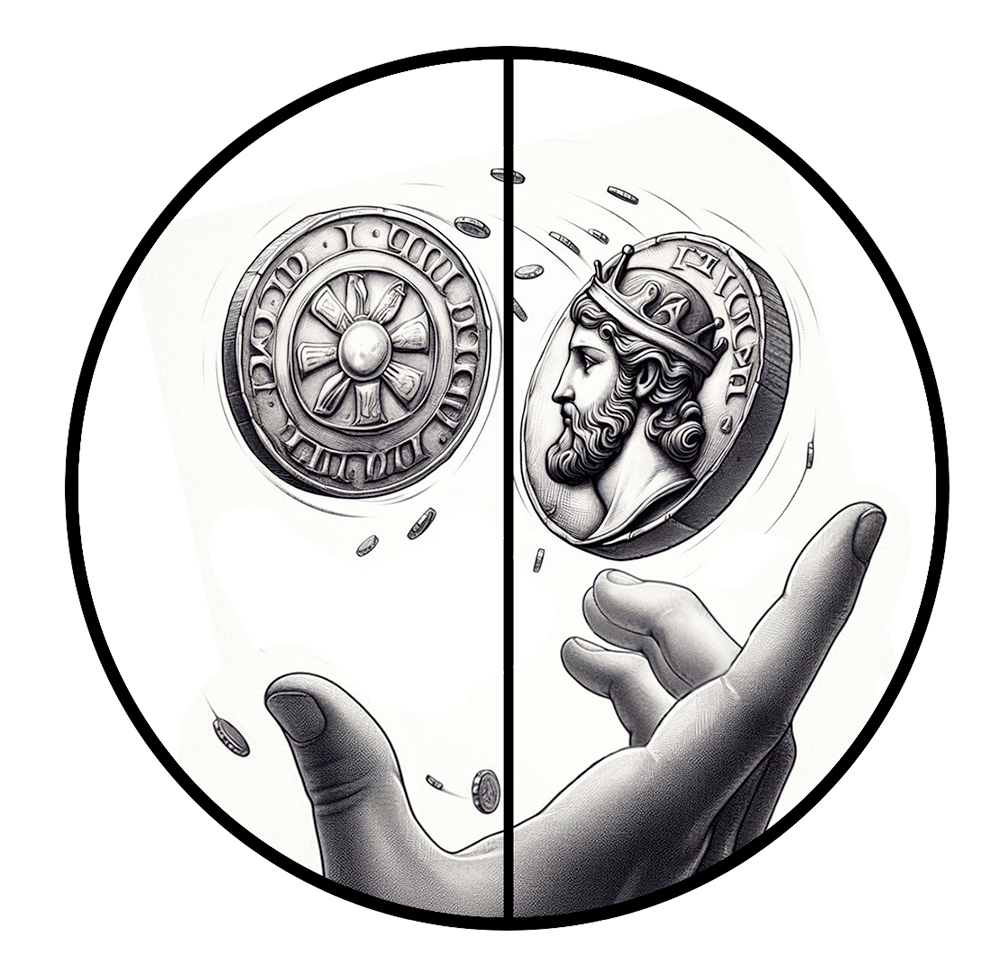Chapter 27
 Matthew 27:3
Matthew 27:3

Τότε ἰδὼν Ἰούδας ὁ παραδιδοὺς αὐτὸν ὅτι κατεκρίθη, μεταμεληθεὶς ἀπέστρεψε τὰ τριάκοντα ἀργύρια τοῖς ἀρχιερεῦσι καὶ τοῖς πρεσβυτέροις,
RBT Greek Interlinear:
|
Strongs 5119
[list] Λογεῖον Perseus Tote Τότε At that time Adv |
|
Strongs 3708
[list] Λογεῖον Perseus idōn ἰδὼν he who has perceived V-APA-NMS |
|
Strongs 2455
[list] Λογεῖον Perseus Ioudas Ἰούδας Jude N-NMS |
|
Strongs 3588
[list] Λογεῖον Perseus ho ὁ the Art-NMS |
|
Strongs 3860
[list] Λογεῖον Perseus paradidous παραδιδοὺς* he who is delivering up V-PPA-NMS |
|
Strongs 846
[list] Λογεῖον Perseus auton αὐτὸν himself PPro-AM3S |
|
Strongs 3754
[list] Λογεῖον Perseus hoti ὅτι because/that Conj |
|
Strongs 2632
[list] Λογεῖον Perseus katekrithē κατεκρίθη He was down separated V-AIP-3S |
|
Strongs 3338
[list] Λογεῖον Perseus metamelētheis μεταμεληθεὶς he who has regretted V-APP-NMS |
|
Strongs 4762
[list] Λογεῖον Perseus estrepsen ἔστρεψεν Turned away V-AIA-3S |
|
Strongs 3588
[list] Λογεῖον Perseus ta τὰ the Art-ANP |
|
Strongs 5144
[list] Λογεῖον Perseus triakonta τριάκοντα thirty Adj-ANP |
|
Strongs 694
[list] Λογεῖον Perseus argyria ἀργύρια money N-ANP |
|
Strongs 3588
[list] Λογεῖον Perseus tois τοῖς the Art-DMP |
|
Strongs 749
[list] Λογεῖον Perseus archiereusin ἀρχιερεῦσιν chief priests N-DMP |
|
Strongs 2532
[list] Λογεῖον Perseus kai καὶ and Conj |
|
Strongs 4245
[list] Λογεῖον Perseus presbyterois πρεσβυτέροις to [your] elders Adj-DMP |
RBT Hebrew Literal:
No Thanks
At that time, Caster, he who has perceived, the one who is handing over himself because he was down separated, he who has regretted, rotated around the Thirty Silver of the High Priests and Elders.
Flipping the Coin.
στρέφω (strefō): turning about or aside, as seen in examples like "turning horses" (Homer, Iliad 8.168, Odyssey 15.205), "turning a rudder" (Pindar, Fragment 40), and "turning oneself towards the sun" (Aeschylus, Prometheus Bound 708). It also denotes causing rotation on an axis, such as "turning the earth on a potter's wheel" (Herodotus 5.12) or metaphorically, turning laws and norms upside down (Plato, Gorgias 511a). The verb extends to figurative uses like overturning or altering significantly, as in "upsetting the laws" (Demosthenes 21.91) or "changing one's way of life" (Euripides, Medea 416).
στρέφω (strefō): turning about or aside, as seen in examples like "turning horses" (Homer, Iliad 8.168, Odyssey 15.205), "turning a rudder" (Pindar, Fragment 40), and "turning oneself towards the sun" (Aeschylus, Prometheus Bound 708). It also denotes causing rotation on an axis, such as "turning the earth on a potter's wheel" (Herodotus 5.12) or metaphorically, turning laws and norms upside down (Plato, Gorgias 511a). The verb extends to figurative uses like overturning or altering significantly, as in "upsetting the laws" (Demosthenes 21.91) or "changing one's way of life" (Euripides, Medea 416).
Julia Smith Literal 1876 Translation:
Then Judas, he delivering him up, having seen that he was condemned, having felt regret, returned the thirty silver coins to the chief priests, and the more ancient,
Then Judas, he delivering him up, having seen that he was condemned, having felt regret, returned the thirty silver coins to the chief priests, and the more ancient,
LITV Translation:
Then Judas, the one betraying Him, seeing that He was condemned, repenting, returned the thirty pieces of silver to the chief priests and the elders,
Then Judas, the one betraying Him, seeing that He was condemned, repenting, returned the thirty pieces of silver to the chief priests and the elders,
ESV Translation:
Then when Judas, his betrayer, saw that Jesus was condemned, he changed his mind and brought back the thirty pieces of silver to the chief priests and the elders,
Then when Judas, his betrayer, saw that Jesus was condemned, he changed his mind and brought back the thirty pieces of silver to the chief priests and the elders,